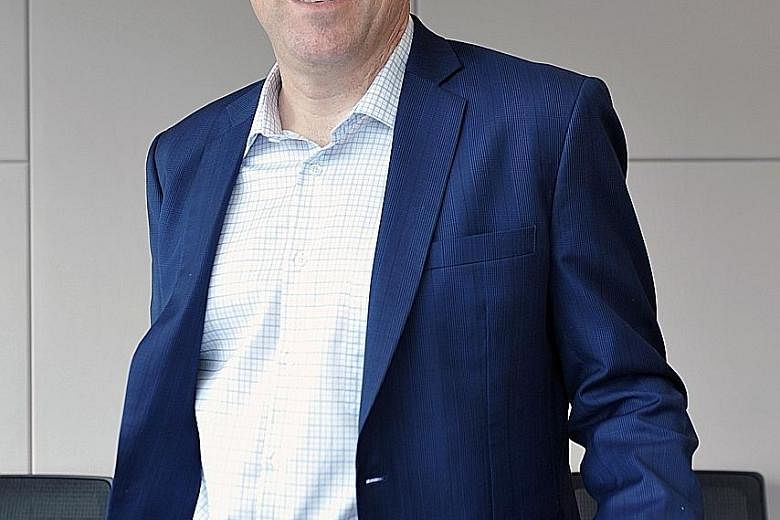Singaporeans' "healthy life expectancy" has not increased as much as their life expectancy, says internationally renowned ageing expert Brian Kennedy.
While the country has measures to help the elderly age well at home and treat chronic diseases, more medical research can be done to delay ageing - and he hopes to achieve that as director of the new Centre for Healthy Ageing at the National University Health System (NUHS).
Delaying ageing will delay the onset of several chronic diseases such as diabetes and Alzheimer's disease, extend a person's "healthspan" or healthy life expectancy, and curb rising healthcare costs, he told The Straits Times.
His comments yesterday come against the backdrop of Prime Minister Lee Hsien Loong's advice to Singaporeans during the National Day Rally on Sunday. PM Lee had said: "On average, we live to 82 years and out of these 82 years in old age, we experience eight years of ill health."
Professor Kennedy - who was the president and chief executive of the Buck Institute for Research on Ageing in the United States from 2010 till last year - was appointed to his role at NUHS last month.
He was also appointed Distinguished Professor in the biochemistry and physiology departments at the Yong Loo Lin School of Medicine at the National University of Singapore (NUS).
Associate Professor Chong Yap Seng, vice-dean of academic medicine at the school, said Prof Kennedy was a thought leader in the research field of ageing, and added: "We're quite happy with Singaporeans' lifespans, which are among the longest in the world, but we want to prolong the healthy part of the lifespan as far as possible."
Prof Kennedy cited a 2012 global study which showed that, from 1990 to 2010, Singaporeans' lifespans grew by 5.4 for females and and six years for males, but their healthspans grew by 3.4 and 4.1 years respectively.
"It is already possible to extend lifespan and healthspan in animal models, and the time has come for human testing," he said.
"With Singapore's ageing population and, importantly, its progressive approach to develop the best and most efficient healthcare system, it is poised to take the lead in human ageing studies."
He said the Centre for Healthy Ageing would look into delaying ageing through behaviours, such as exercise and fasting, and using drugs.
It is also collaborating with the Institute for Ageing Research at the Albert Einstein College of Medicine in the US, which is studying if the drug metformin can extend human healthspan. It can already extend lifespan in animals and is used to treat diabetes.
The centre will perform similar studies and compare data, to see if ageing interventions have similar outcomes in different ethnicities.


